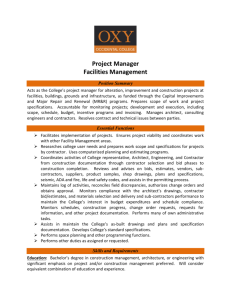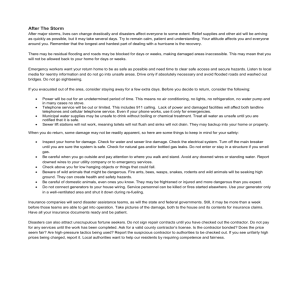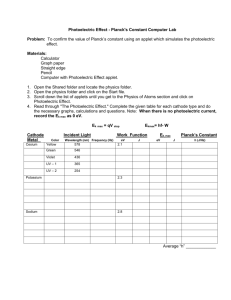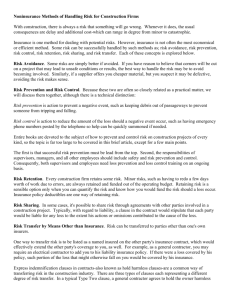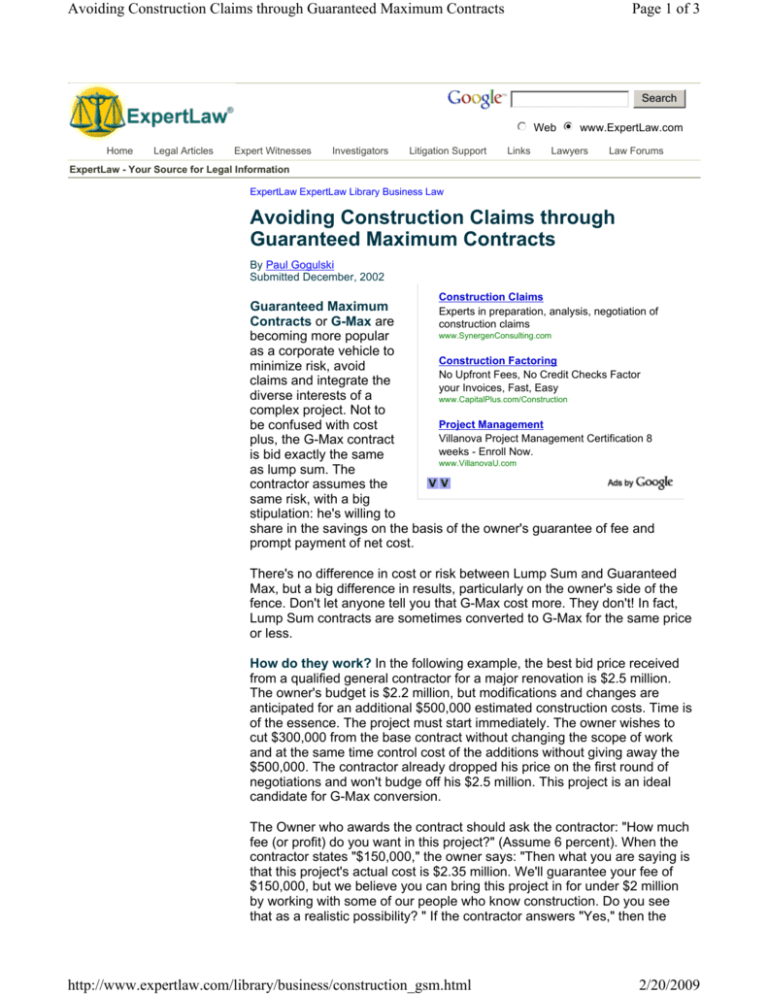
Avoiding Construction Claims through Guaranteed Maximum Contracts
Page 1 of 3
Search
Web
www.ExpertLaw.com
Home
Legal Articles
Expert Witnesses
Investigators
Litigation Support
Links
Lawyers
Law Forums
ExpertLaw - Your Source for Legal Information
ExpertLaw ExpertLaw Library Business Law
Avoiding Construction Claims through
Guaranteed Maximum Contracts
By Paul Gogulski
Submitted December, 2002
Construction Claims
Guaranteed Maximum
Experts in preparation, analysis, negotiation of
Contracts or G-Max are
construction claims
www.SynergenConsulting.com
becoming more popular
as a corporate vehicle to
Construction Factoring
minimize risk, avoid
No Upfront Fees, No Credit Checks Factor
claims and integrate the
your Invoices, Fast, Easy
diverse interests of a
www.CapitalPlus.com/Construction
complex project. Not to
Project Management
be confused with cost
Villanova Project Management Certification 8
plus, the G-Max contract
weeks - Enroll Now.
is bid exactly the same
www.VillanovaU.com
as lump sum. The
contractor assumes the
same risk, with a big
stipulation: he's willing to
share in the savings on the basis of the owner's guarantee of fee and
prompt payment of net cost.
There's no difference in cost or risk between Lump Sum and Guaranteed
Max, but a big difference in results, particularly on the owner's side of the
fence. Don't let anyone tell you that G-Max cost more. They don't! In fact,
Lump Sum contracts are sometimes converted to G-Max for the same price
or less.
How do they work? In the following example, the best bid price received
from a qualified general contractor for a major renovation is $2.5 million.
The owner's budget is $2.2 million, but modifications and changes are
anticipated for an additional $500,000 estimated construction costs. Time is
of the essence. The project must start immediately. The owner wishes to
cut $300,000 from the base contract without changing the scope of work
and at the same time control cost of the additions without giving away the
$500,000. The contractor already dropped his price on the first round of
negotiations and won't budge off his $2.5 million. This project is an ideal
candidate for G-Max conversion.
The Owner who awards the contract should ask the contractor: "How much
fee (or profit) do you want in this project?" (Assume 6 percent). When the
contractor states "$150,000," the owner says: "Then what you are saying is
that this project's actual cost is $2.35 million. We'll guarantee your fee of
$150,000, but we believe you can bring this project in for under $2 million
by working with some of our people who know construction. Do you see
that as a realistic possibility? " If the contractor answers "Yes," then the
http://www.expertlaw.com/library/business/construction_gsm.html
2/20/2009
Avoiding Construction Claims through Guaranteed Maximum Contracts
Page 2 of 3
owner asks: "Would you then accept a Guaranteed Max contract with the
understanding that all costs saved below the $2.35 million will be returned
to the owner? " If the answer is "Yes," then you can establish the method of
administration. If the answer is "No," then you negotiate a 75-25 or 50-50
split in the savings and ask: "If we guaranteed $500,000 of additional work
to the base contract, will you agree to reduce your fee on extras for the first
$250,000 of additional work?"
This is just the beginning, there are many possibilities. The yield at the end
of the project often exceeds the original objective (in this case $300,000)
because the atmosphere has changed from adversarial to partner. With
proper controls, and by working with contractors as a team member, it is
possible to obtain greater yields on the bottom line than by any other
contracting method.
G-Max contracts best achieve the owner's objective because a partnership
is formed between owner and contractor wherein the owner agrees to
reimburse the contractor for actual cost as it occurs, not from a schedule of
values. This eliminates the distrust between parties. It also eliminates the
contractor's negligence to pay his suppliers and subcontractors because he
gets audited monthly. In today's market, this one issue alone will solve a lot
of problems and insure both savings and a smoothly running project.
The owner plays an active role throughout the entire process. The whole
issue of cost is manageable when the savings are shared, rather than
negotiated from an adversarial position. When the administration is
properly set-up and organized, the benefits are truly amazing. Because
every purchase order and invoice received from the contractor is submitted
to the owner as backup, and because the owner agrees to cut the time for
processing and pay promptly, a positive and successful relationship is
assured. Front end loading disappears, so does the haggling with price.
There is another reason for using the G-Max contract system: It is the best
vehicle for recovering cost when pricing on extras becomes unreasonable.
The fact that owners have tremendous leverage on extras is not often
mentioned among users, perhaps because it is a business advantage.
Consider once again the outrageous cost for a new door. Assume that the
contractor wants $1,500 to cut the hole and install a new door, plus another
$50,000 to relocate the 4-inch gas pipe that nobody knew existed. Assume
also that the true cost of the piping relocation is only $10,000, but the
contractor will not back off his estimate. The work must start and he
demands approval. Under lump sum contracts owner's haven't got much
choice, but under the G Max system, even if you agree to the $50,000, all
you've given away is the difference in fees, or $2,400 instead of $40,000.
Once the work is complete and true cost is known, even this can be
adjusted. There's a strong incentive here to be honest. Nothing like it exists
with any other format. Cost plus contracts claim to be the same, but in
reality they do not have any incentive for shared savings or efficiencies.
Still another advantage of G-Max occurs when work must start ahead of
final drawings. There are often issues that delay completion of the
drawings and therefore start of construction. The G-Max format allows
owners to minimize risk when proceeding with work ahead of final
drawings. It has been my experience to start work on 30 percent completed
drawings while obtaining a G-Max price for the entire project based on
preliminary drawings and outline specifications. That's an extreme
example, but it does happen.
http://www.expertlaw.com/library/business/construction_gsm.html
2/20/2009
Avoiding Construction Claims through Guaranteed Maximum Contracts
Home
Expert Witness Directory
Litigation Support
Private Investigators
Law Articles
Law Forums
Research Links
About Us
Ads by Google
Contract Termination
Legal Contract Sample
Contract Templates
Distribution Contract
Page 3 of 3
The downside also needs stating. G-Max contracts require more work on
the owner's part to administer. The main effort involves defining what is
cost. And if you are not interested in collecting discounts, obtaining credits
for small tools, establishing realistic labor rates, monitoring rentals, and are
not really prepared to act as a partner with your contractor in the project,
then this program is not for you. Don't try this if you don't have a strong
administrator experienced in general contracting. Contractors resent
inexperienced owners questioning their decisions, and they certainly aren't
eager to have their books audited by anyone they don't trust. Properly setup and administered however, G-Max contracts are a win-win situation."
Construction Claims
Experts in preparation, analysis, negotiation of construction
claims
www.SynergenConsulting.com
Construction Contract
Construction Contract Find what you're looking for!
www.ixquick.com
Business Articles
Guaranteed Maximum Contracts
Drafting Representative
Agreements
Value in Representative
Agreements
Choosing A Business Form
Balanced Distributor Agreement
Construction Factoring
No Upfront Fees, No Credit Checks Factor your Invoices, Fast,
Easy
www.CapitalPlus.com/Construction
FREE Consulting Agreement
Make a Consulting Contract Online Absolutely Free-Print, Save
& Send
RocketLawyer.com/Consulting-Form
The Corporation
The C Corporation
The S Corporation
Distributor & Dealer Litigation
Copyright © 2002 Paul Gogulski. All rights reserved. No portion of this article may be reproduced without the express
written permission of the copyright holder, except as follows: You may link this article to your website, either directly or
through an ExpertLaw Library index page, provided your link does not depict this article, its author, or expertlaw.com in
a negative manner.
Evaluating Franchise Investments
Franchising vs. Expansion
Copyright © 1998 - 2008 Aaron Larson. All rights reserved.
Limited
Company
About
UsLiability
Terms
of Use /(LLC)
Privacy Policy Contact Us
Home
Expert Witnesses Litigation Support Private Investigators
Legal Articles Law Forums Article Index Site Map
Incorporating Your Business
Selecting a Business Format
Company Fiscal Exam
Letter of Credit
The OCIP
The Partnership
Piercing the Corporate Veil
The Promissory Note
Contract Law
Common Contract Clauses
Should You Incorporate
The Sole Proprietorship
The Statute of Frauds
Fraud and Misrepresentation
Where To Incorporate
Personal Finance Articles
Securities Law Articles
Business Experts
Business Law Forums
http://www.expertlaw.com/library/business/construction_gsm.html
2/20/2009




